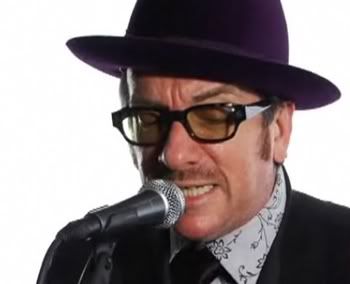
The image I have chosen for this post is the tarot card for the six of swords. I enjoy the artwork in tarot decks, and understanding the meaning of the cards helps me appreciate the intent of the artist. But sometimes, people get carried away, and make their interpretations overly esoteric. The classic image for the six of swords says it all: the card signifies a journey by water. This can be taken literally. Metaphorically, it represents a rite of passage. This kind of journey often involves a triggering event, often emotionally painful, which prompts the journey in the first place. The card shows the journey in progress; it has nothing to say about the outcome.
Al of the above applies equally well to songs about journeys by water. Let’s consider some examples.
Hem: Sailor
[purchase]
Sailor is a song of yearning. The narrator is in love, but does not know if her love is returned. She will leave the shore to see the object of her affection, and hope for the best. The lyric is pretty simple, but Hem does a beautiful job of filling in the blanks with the musical setting.
Richard Thompson: Mingulay Boat Song
[purchase]
Mingulay Boat Song is thought by many to be a traditional Scottish folk song. It describes the life of a crew of simple fishermen, eager to come to shore and be reunited with their families. But the song is actually a nostalgic piece, idealizing a life that no longer existed at the time it was written.. The island of Mingulay, of the coast of Scotland, had been occupied continuously for at least two thousand years, until it was abandoned in 1912. Mingulay Boat Song, however, wasn’t written until 1938, by Sir Hugh S Roberton, in Glasgow. Roberton wrote the song for the Glasgow Orpheus Choir, which he directed from 1901 to 1951. The choir started as an amateur choir associated with a men’s work society, but Roberton set high standards for the group. In time, they would achieve a measure of fame, both in Europe and North America.
Mingulay Boat Song has passed into the folk cannon by now. Richard Thompson’s performance clearly shows why.
Elvis Costello: Last Boat Leaving
[purchase]
Returning to our theme of rites of passage, we come to Last Boat Leaving. Elvis Costello wrote this one, under his given name of Declan McManus, for a movie called The Courier. The film tells the story of a man who discovers that the courier company he works for is a cover for a big-time drug dealer. After Costello finished the song, the film makers changed the ending of the movie, and the song no longer worked. So a shorter instrumental version was used in the film, and the full version heard here was released on Costello’s next album.
I assume that the original version of the movie had the hero going to jail at the end. Last Boat Leaving is a tale of a man regretting his actions once he finds that he is to be separated from his family and sent to prison. Clearly, for him, this will be a rite of passage. The man who left will not be the same man who returns. It’s not necessary to see the film to appreciate this song, and I have never seen it. The song speaks for itself.
John Wesley Harding: William Glenn
[purchase]
William Glenn is another song of crime and punishment. Glenn is a sea captain who has committed a murder on land for the love of another man’s wife. When he and his crew set out to sea, they are beset by a deadly storm. Once the crew learns of Glenn’s crime, they cast him overboard. Immediately, the storm ceases, and the crew is saved. Glenn’s journey takes him to the point where he can admit his guilt, and save his crew if not himself.
The song lightly touches on an old Celtic belief. Death, the ultimate rite of passage, is often depicted in the old tales as a journey over water. The spirits of warriors who fell in battle would be collected and taken to the sacred island of Tir na Nog. In many of the oldest songs of the British Isles, one finds death and the ocean side by side.
Sting: The Wild Wild Sea
[purchase]
The Wild Wild Sea, it seems to me, is a tale of a haunted dream. The black sails suggest death, and the way the character appears in the song suggests that the father is a ghost. Indeed, the song comes from Sting’s album The Soul Cages, which he wrote while dealing with the deaths of his parents. Just as William Glenn presents the journey toward death as a voyage through a stormy sea, so is the journey through the mourning process. I have several friends, and I can also include myself in this, who recently lost a loved one. May this song help us on our journey as well.
**********************************************************
So there are many different kinds of rites of passage, and there are many different kinds of songs of the sea to describe them. Likewise, the six of swords embodies all of these different meanings. I see no reason to look for more.








